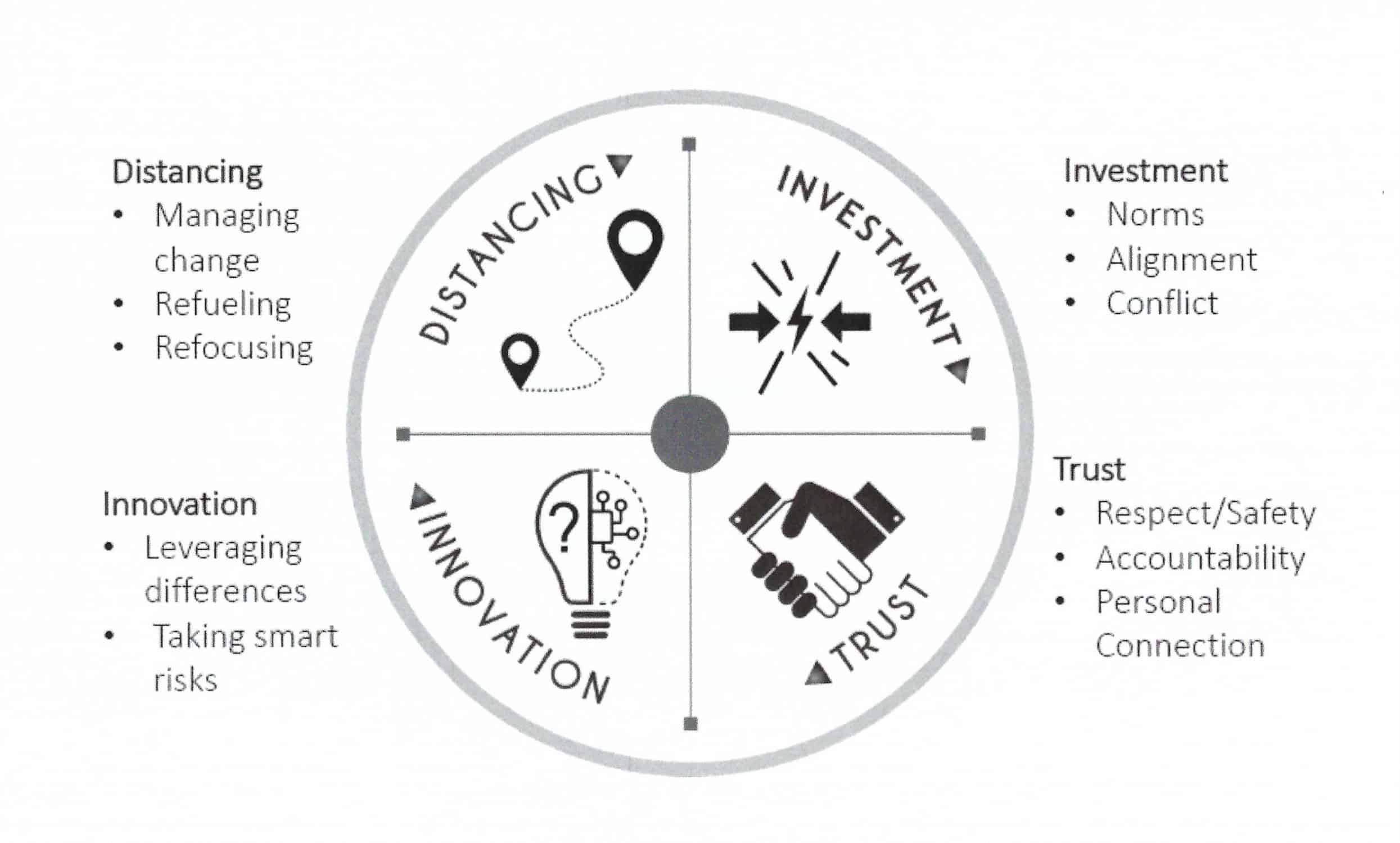Interpersonal exchanges are usually reflections of broader team culture. Teammates act out the behaviors normalized by the ecosystem. If an appreciation of differences is expected, we’re more likely to see curiosity than dismissiveness. If, on the other hand, disrespect is tolerated on the team, we are more likely to see guardedness than trust. The actions of individual teammates are expressions of the workplace norms.
Widening the lens means following the symptom back to its source. If a teammate is disrespectful or dismissive, it might be valuable to question leadership’s tolerance of behaviors that undermine trust and collaboration. Likewise, if a teammate contributes a creative solution to a problem, it might be valuable to examine what aspects of the team culture enable exploration, discovery and innovation.
Both wellness and sickness create symptoms that reveal the team’s condition. Once you’ve finished peering in for microscopic study, step back and get a view from the universe. This is the purpose of the Distancing Stage of the Team Clock® cycle. Acknowledge the circumstances and then step back for a wider angle. The way forward lies in the macro view, not the minutiae.

